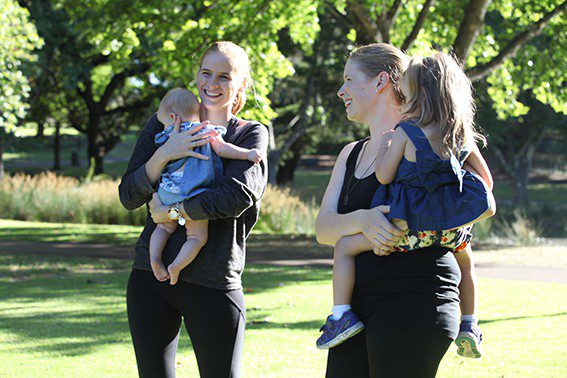Exercising whilst pregnant is great! Not only does it improve your general wellbeing but it can help to prevent excess weight gain and increase weight loss after delivery. It helps control blood glucose levels which is valuable for the prevention and treatment of gestational diabetes. Research also suggests women who exercise have a reduced risk of acquiring pre-eclampsia (pregnancy induced high blood pressure and potential organ damage).
Possible exercise risks to the fetus:
Contact sports: during the second and third trimester when the uterus sits within the abdominal cavity, direct trauma to the fetus may occur as a result of a collision.
Research suggests that the average birthweight of a child whose mother has been exercising intensely and frequently during pregnancy is generally lower than that of a sedentary mother. There have not been any proven advantages or disadvantages for different birth weights.
Hyperthermia (over heating): this should be avoided in in the first weeks of pregnancy as the development of the neural tube at this stage has shown to be affected in animals. No research has be done on humans.
Changes in fetal heart rate may occur based on gestational age and the duration, intensity and type of exercise. There has not been any definitive research into the effects of this.
Possible risks to the mother:
Being pregnant means your body is going to undergo a lot of changes. Your centre of gravity changes (moves upwards and forwards), your pelvis tilts more forwards, the lumbar lordosis (curve) increases, and increased relaxin in the blood loosens the ligaments throughout the entire body. This increases your chance of obtaining a musculoskeletal injury during exercise.
Injury to the lower back and pelvis can be avoided by improving posture, strengthening the abdominal, pelvic and back muscles. Soft tissue release, acupuncture, stabilisation exercises or support belts are also very effective.
Postural Hypotension (low blood pressure): Prolonged standing means impaired blood flow to the heart due to slowed venous return. Exercising in supine (lying on your back) for prolonged periods means the uterus can compress the major blood vessels, again resulting in poor blood return to the heart.
Exercise Guidelines:
- 30 minutes or more of moderate exercise 3-5 times a week
- gradual introduction, self paced, low impact aerobic exercise is recommended
- avoid exercising supine after the first trimester.
- avoid hyperextension of the spine
- avoid exercising in hot weather
- supplement every exercise session with a small meal and a glass of water.
- warm up and cool down appropriately
- avoid excessive or ballistic/dynamic stretching
- wear a firm supportive bra
- cease activity immediately if pain, uterine contractions, vaginal bleeding or leakage, dizziness, faintness, shortness of breath, heart palpitations, nausea,vomiting, pins and needles, numbness or visual disturbances occur.
Exercise Do’s
- jogging; only if was being done before pregnancy.
- walk/ run on softer surfaces with supportive shoes.
- low impact aerobic exercise
- yoga
- cycling, but later on in the pregnancy move to a stationary bike
- swimming, walking/ running in the water/ water aerobics
- weight training can be continued but not commenced; high reps low weights is preferable
- core exercises: pelvic floor and transverse abdominals
Exercise Dont’s
- don’t start a new high impact exercise during pregnancy
- partake in exercise that requires a lot of bouncing
- excessive stretching – it puts too much strain on the already loose ligaments
- parachute jumping
- frequent scuba diving > 10m
- contact sports
- water skiing
- exercise at high altitudes >3000m
ALWAYS consult your GP before commencing a new exercise program whilst pregnant.
Feel free to contact us with any questions queries or doubts,
All the best
Jess Ellison (Physiotherapist)

